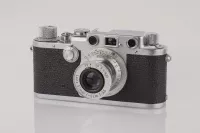From career breakthroughs to professional milestones, explore how Ula Stöckl made an impact.
Ula Stöckl is a German feminist filmmaker, director, screenwriter, and occasional actress. She is known for her contributions to feminist cinema and her work exploring themes of female identity and social issues. Her films often challenge traditional cinematic conventions and offer alternative perspectives on women's experiences. Stöckl is considered a significant figure in the New German Cinema movement and has influenced subsequent generations of filmmakers through her innovative storytelling and commitment to feminist ideals.
1954: Quit School and Trained for Secretarial Work
In 1954, Ula Stöckl quit school and trained for secretarial work, which would remain her principal source of paid employment till 1963.
1961: Trilingual Executive Secretary
Between 1961 and 1963, Ula Stöckl worked as a trilingual executive secretary.
August 1963: Editorial Assistant at DM-Verlag
Between May and August 1963, Ula Stöckl worked as an editorial assistant with the publishers DM-Verlag at Sandweier.
1964: Production of "Antigone"
In 1964, Ula Stöckl produced her first film, "Antigone", as part of her course, using a silent 35-mm Arri camera.
1968: Production of "Neun Leben hat die Katze"
In 1968, Ula Stöckl produced her graduation feature film, "Neun Leben hat die Katze" ("The cat has nine lives"), which subsequently acquired a cult status among supporters, seen by some as "West Germany’s first feminist film".
1968: Establishment of Production Company
In 1968, Ula Stöckl set up her own production company, "‚Ula Stöckl Filmproduktion".
1971: "die Geschichten vom Kübelkind" on Television
Starting in 1971, sections of "die Geschichten vom Kübelkind" began to find their way onto television, garnering a larger more mainstream audience and establishing more broadly the public reputations of its two co-producers.
1974: Co-production of "Fräulein Julie"
In 1974, Ula Stöckl co-produced with Werner Fassbinder Strindberg's stage drama "Fräulein Julie" at the Theater am Turm in Frankfurt. The experience was not an entirely happy one.
1978: Engagement with International Women's Film Festival
For fifteen years following its foundation in 1978, Ula Stöckl was closely engaged with the International Women's Film Festival in Créteil (Paris).
1982: Work for "Berlinale" Film Festival
Since 1982, Ula Stöckl has worked for the "Berlinale" film festival in connection with "competition and panorama", also finding a niche as a moderator and presenter of the festival's press conferences and public discussions.
1984: Release of "Der Schlaf der Vernunft"
In 1984, Ula Stöckl returned to the cinema with one of her most acclaimed productions, "Der Schlaf der Vernunft" ("Sleep of Reason").
1992: Release of "Das alte Lied"
In 1992, Ula Stöckl's "Das alte Lied" ("The old song"), one of the first so-called "Spielfilme" (loosely, "narrative films"), appeared. It revisited her theme of conflict in human relationships, and dealt with some of the themes arising out of reunification, thereby touching on matters which at the time were preoccupying very many Germans.
2002: Programme Adviser for Venice International Film Festival
For a couple of years between 2002 and 2004, Ula Stöckl was employed as a programme adviser in the selection committee for the Venice International Film Festival.
2004: Programme Adviser for Venice International Film Festival
For a couple of years between 2002 and 2004, Ula Stöckl was employed as a programme adviser in the selection committee for the Venice International Film Festival.
2004: Professorship at the University of Central Florida
Since 2004, Ula Stöckl has held a professorship at the University of Central Florida on the edge of Orlando FL where she focuses on film direction and production and, inevitably, on the place of women in film.
Mentioned in this timeline
Germany officially the Federal Republic of Germany is a Central...

The domestic cat is a small domesticated carnivorous mammal and...
Florida a southeastern U S state is a peninsula between...

The camera a device for capturing still images and moving...
Paris the capital and largest city of France is a...
Trending

32 minutes ago FAA Tests Drone Detection Following Sightings; Duffy Criticizes Biden, Praises Trump
33 minutes ago West Ham Holds Manchester United to Goalless Draw, Impacting Red Devils' WSL Title Hopes

33 minutes ago Jos Buttler takes an amazing flying catch in IPL 2025 match!

2 hours ago Mikie Sherrill Competes in Tight Democratic Primary for New Jersey Governor in 2025.

2 hours ago Iga ?wi?tek faces Jelena Ostapenko in Stuttgart after strong words and potential rival.

3 hours ago Ben Shelton faces Francisco Cerundolo in ATP Munich Semifinal; prediction and preview.
Popular
The Real ID Act of is a US federal law...

Bernard Bernie Sanders is a prominent American politician currently serving...

Michael Jordan also known as MJ is a celebrated American...

Cristiano Ronaldo nicknamed CR is a Portuguese professional footballer widely...

Donald John Trump is an American politician media personality and...

Marco Rubio is an American politician who served as a...